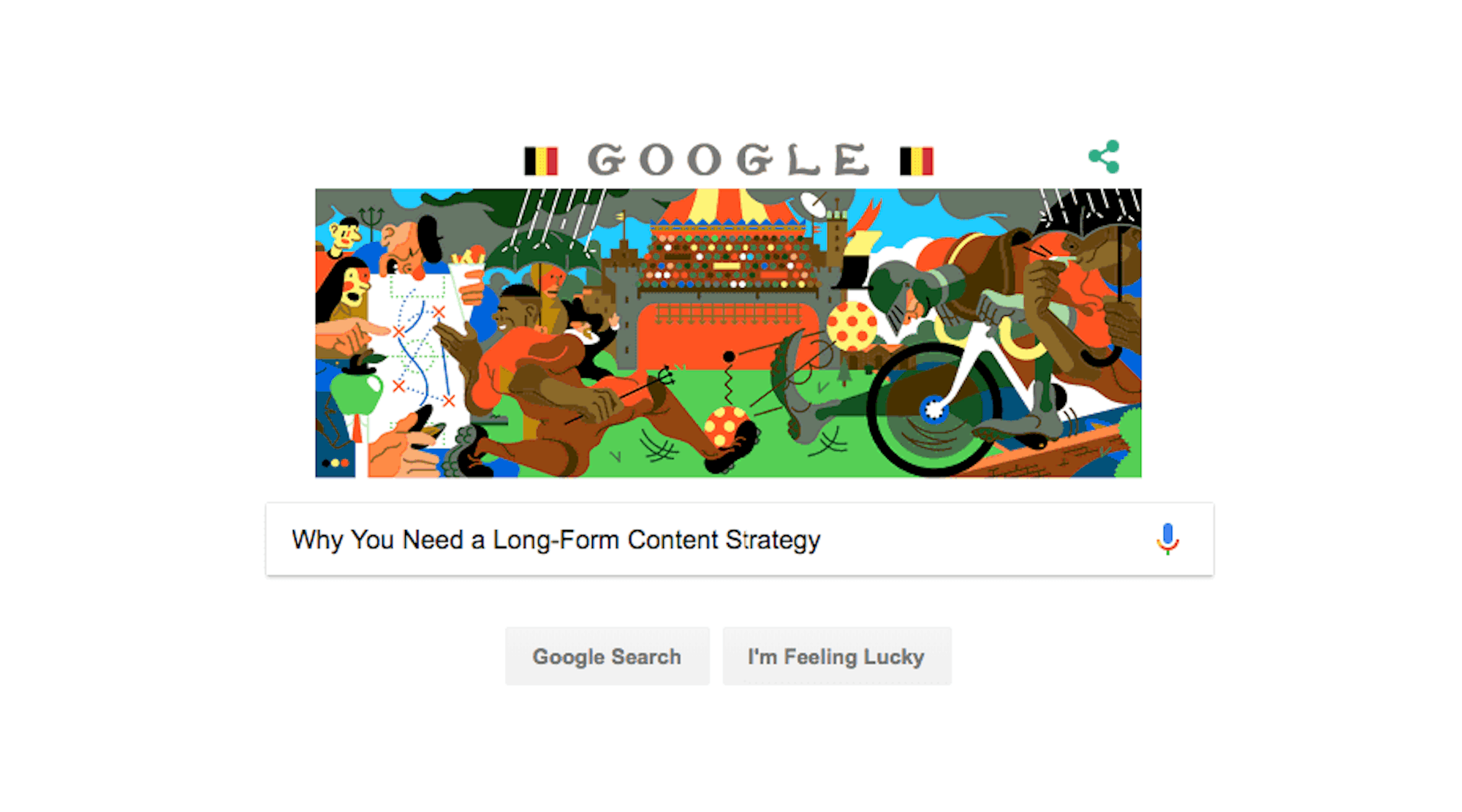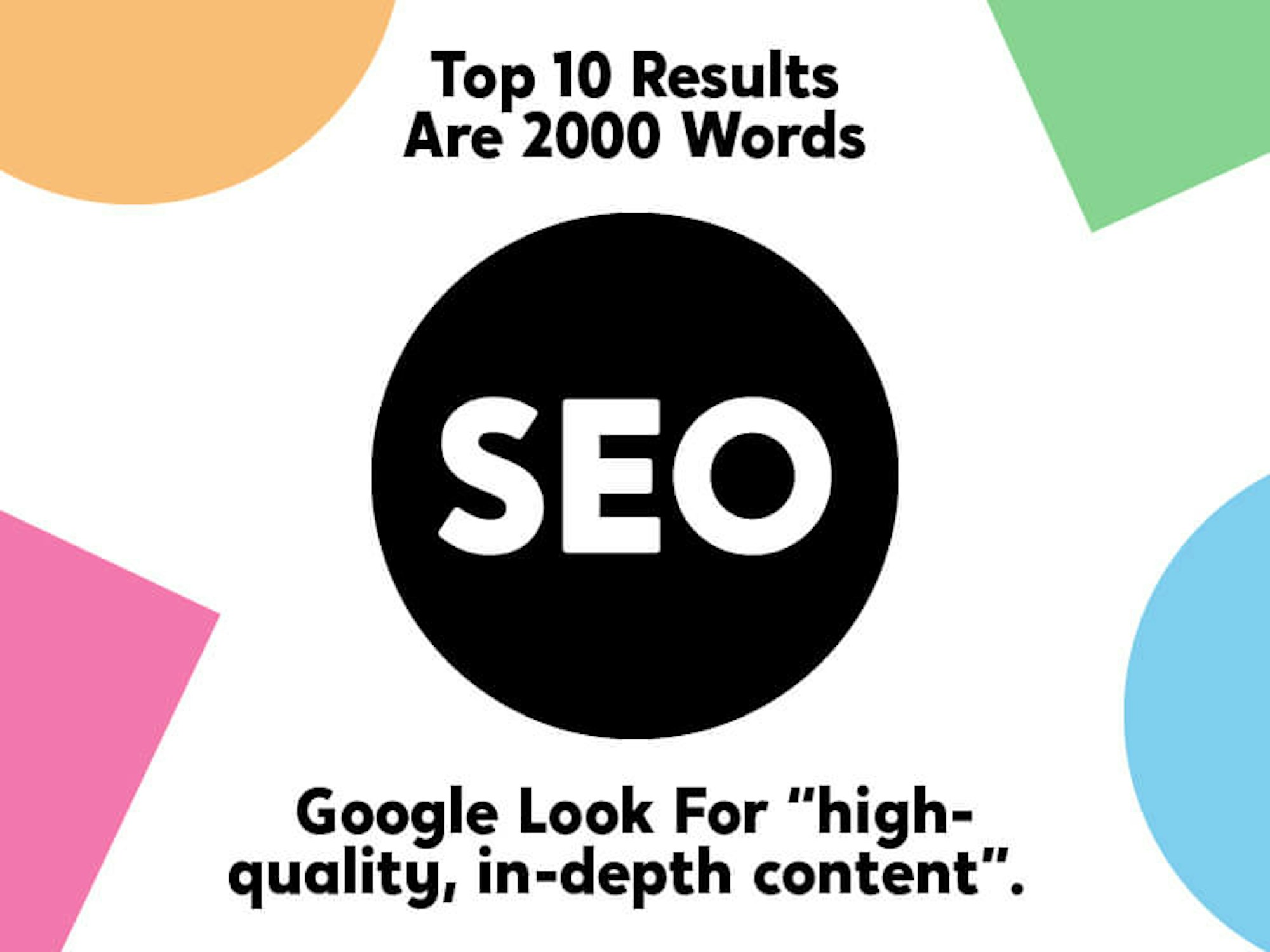Even if you don’t, it sounds familiar, doesn’t it? The trouble is, recent data-backed research and anecdotal evidence from some of the web’s most influential gurus suggests that this isn’t actually true. It seems, despite everything we’ve all been told, that 500 words isn’t actually the most effective length for your articles, blogs and other bits of content.
Before we all throw the baby out with the bathwater though, it’s important to note that this doesn’t mark the end of the 500-word blog post. That will always have its place and relevance. They’re great for short snippets into a subject – especially with an audience that understands you well already.
But we’re not here to talk about that. Long-form content, and by that we mean anything above about 1200 words, carries many benefits for those willing to adopt it into their strategy and put the requisite time and effort in. Let’s take a look.
Long-Tail Keywords and Searches
Years ago, back in the old days of SEO, websites were optimised for short keywords. This was how people searched and how the internet operated. But not anymore. With over 1.5 billion websites in the world, users now search with long-tail queries to find what they’re looking for. Modern searchers are looking for precise answers to their very niche and specific questions. One-word differentiators are not enough to get you noticed anymore.
So how does long-form content help this? Well, simply, given the larger number of words in your post it is far easier to include more, and a greater variety of, long-tail keywords. Over 70% of search queries are long-tail – that’s valuable traffic you don’t want to be missing out on. The other benefit of this is that your long-form content can answer many different queries at once – it is no longer a one-trick pony.

Increase User Engagement
It’s not a big neural jump to think that the more content you give people, the longer they will spend reading it and the more engaged they will be. Contrary to what everyone seems to be saying about short attention spans, the evidence shows that people enjoy longer content and as a consequence are more engaged with it. It’s difficult to really get into an article when it’s over before it really gets going.
Increased engagement is gold dust for website owners across the world. The more of a user’s attention you hold, the more likely they will convert. After all, that is why we’re here. To get conversions, drive sales, get signups – whatever the metric is for your business.
Thought Leadership
Just as it’s hard to really get into a 300-word article when you read it, it is equally, if not more, difficult to delve into a subject when writing to that limit. It is far too constricting, and too often shorter blog posts and articles will oversimplify subjects. Let’s not forget that the whole point of content marketing, and inbound marketing, is that users will get value from your content and you will occupy the top spot in their mind when they need your services.
Which company are you more likely to remember? The one who condensed your specific problem into 300 snazzy words, or the one that dedicated the time to answer it properly, in detail, with 2000. We’ll bet it’s the latter and that, actually, the long-form content answered questions you didn’t even know you had yet. That’s adding value.
SEO
It’s not just your users that will thank you for your long-form content. Google’s algorithms will also favour you more. Google’s rankings will look for “high-quality, in-depth content”. Google is as successful as it is because it finds answers for its user’s questions - it’s particularly good at it. Search engines find it easier to find answers in long-form content – if you don’t believe me, go back and read point one.
Even as far back as 2012, a study by serpIQ found that on average the top 10 search results on Google were over 2000 words in length. This will be in part due to the above point about long-tail queries, but also due to a larger number of backlinks. There’s no secret formula here, the longer your content, the more chance you have of generating a greater number of backlinks. It makes sense when you think about it.
For more on improving your on-site SEO, check out this previous blog.

Your Long-Form Content Strategy
Hopefully, this will have given you the motivation and evidence you need to start adopting long-form content into your wider content strategy. If you haven’t got one of those, start here. Long-form content will help you stand out from your competitors in the world of the 500-word blog post. Not only are you far more likely to answer your user’s questions and add value, but you should appear higher up the search results page as well. The result of all this is that your website works harder and more effectively for you – delivering more conversions.
As a small, but rather important, caveat, your long-form content must be high-quality. Google, and your users are very adept at picking out hashed-together jumbled pieces of content that make little sense and are just an attempt to get words on a page. You’ll damage your SERP rankings as well as your all-important reputation with potential customers.
Take your time, do your research and put together a piece of content that will be valuable to your users. It will take some time and effort, but the results will be worth it – we promise.
